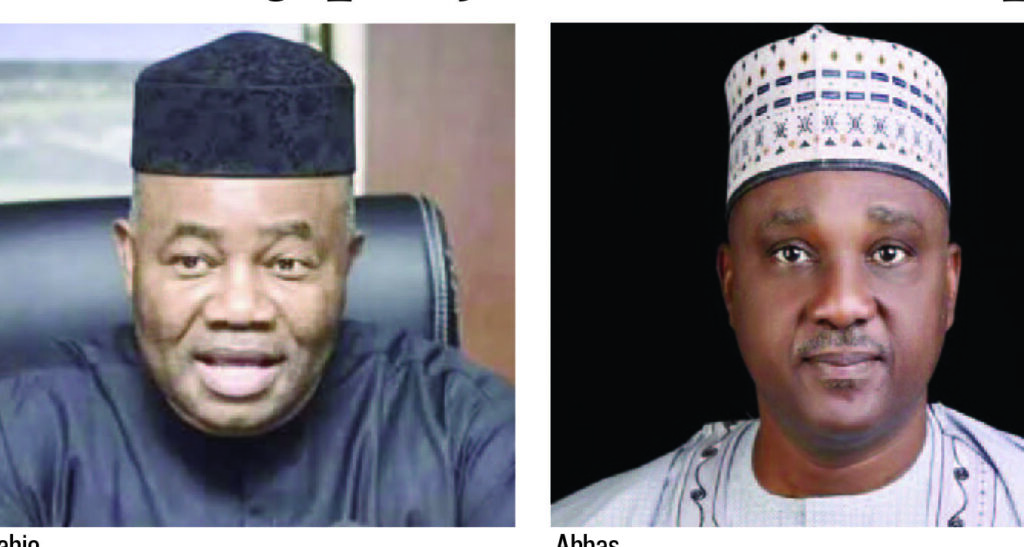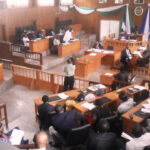
In addition to their lawmaking responsibility, legislators facilitate projects to their constituencies. They take undue advantage of their powers to control public funds (Section 80 of the Constitution) to add projects execution to lawmaking.
There was even the lame argument about whose duty it was to make budgets, just to expand the frontiers for lawmakers. The mindset is that voters only recognise projects as evidence of representation.
A former lawmaker once confessed: “When you hear a governor is doing well, what you hear is that he is doing roads. Because he (a lawmaker) is not constructing roads, no matter the amount of motion he has sponsored or the number of bills, nobody would recognise that when elections come. We have members of parliaments who have sponsored several bills with fantastic motions who never came back to the National Assembly, on the notion that they did not perform.”
To be clear, other political jurisdictions operate similar schemes that enable lawmakers facilitate projects to special areas of need, for instance, in cases of ecological disasters. Such interventions don’t require lawmakers to disrupt due procurement procedures, or leverage the opportunity to gain undue political advantage. But as in all things that Nigerians copy from other conventions, lack of transparency and accountability often ruin the best of intentions.
Former President Olusegun Obasanjo refused to be blackmailed when the idea of constituency projects was first introduced. He thought it amounted to corruption for lawmakers to insert money in budgets for projects. His major grouse has been that it is unconstitutional. And he feared that without appropriate checks, it would be disastrous to allow lawmakers compete with governors/presidents in projects execution.
The idea became institutionalised when President Umar Yar’Adua gave in to the argument of legislators that a certain amount should be allowed for mini projects in constituencies. Since then, constituency projects have enjoyed regular votes in budgets. Some communities have benefited in areas of rural electrification, feeder roads and mini water projects. However, transparency issues still dog the idea of lawmakers executing and oversighting their own projects. Drafters of the theory on separation of powers prescribe a system of checks and balances, so that each arm is open to examination.
Another challenge with constituency projects is that of funding. There are times funds are not enough within a tenure and if the initiators are unable to return, the projects might be abandoned by successors. Some projects have remained uncompleted or abandoned for years. Even when projects are successfully executed, sustainability issues often cripple some. Many water projects across the country have derailed and become unserviceable. If communities are not sensitised enough to take ownership and undertake routine maintenance and repairs, projects are often abandoned once lawmakers fail to return to the legislature, either at the state or federal.
In the 2022 budget, it was reported that over 100 constituency projects were abandoned in 22 states. The investigation sponsored by MacArthur and carried out by accountability CSOs, Order Paper and Budgit revealed that of 3,691 constituency projects in 22 states, only 2,037 were completed and 1,012 were ongoing. In June 2023, the Independent Corrupt Practices and other Offences Commission (ICPC) said it uncovered uncompleted constituency projects of National Assembly members to the tune of N45 billion.
By far more troubling for accountability watchers is the possibility for constituency projects to be manipulated and abused. To offer explanation, lawmakers are forever explaining what constituency projects are and how much they impact communities. This became the lot of the Speaker of the House of Representatives, Tajudeen Abbas, when he arrived Lagos to commission constituency projects facilitated by former Speaker, Femi Gbajabiamila, which were executed in his Surulere 1 Lagos constituency. The former Speaker was elected six times to represent the constituency in the House. He resigned to become Chief of Staff to President Bola Tinubu.
Abbas said: “These specific initiatives are funded through the government budget and are intended to address the needs and improve the conditions of constituents. However, there has been a widespread and endemic misunderstanding of the purpose and essence of these legislative interventions. Constituency projects are not mere items in a budget; they are the lifelines that connect the heart of our government to the heartbeats of communities.”

It is true that constituency projects can connect the people to government. The projects Gbajabiamila attracted to Lagos are top-notch and will do more than connect his constituents to government. In fact, the projects have connected the people of Surulere 1 more to him, than to government, because they were designed and named after him. They are: a conference centre; dualised road and bridge; community development centre; general hospital; hall of residence for the University of Lagos; a campus for the National Open University; a police station; mini stadium and reconstructed Randle Avenue Road.
Without doubt, constituents owe a measure of gratitude to the former lawmaker for being so useful. Apart from these, there are more constituency projects he had attracted in the course of his 20 years stay in the House. If this is how much every lawmaker brings home, landscapes in all 360 federal constituencies would have changed and citizens’ notion of democracy dividends would become real. And Nigerians would then be praying for and voting their representatives to remain forever in office.
But that’s not the end of the story. The beautiful case of Surulere 1 federal constituency would sound much like a fairy-tale when told in some far-flung, remote and abandoned constituencies. It’s one of a kind. So, how did all that happen? How did the lawmaker convince his fellow legislators to allow him go home with all these goodies, when hundreds of others have never been so lucky?
Were all the projects funded from federal budgets or were loans procured to support shortfalls? Did some rich Nigerians make donations to the projects as part of their social responsibility service? How many fiscal years did it take to accomplish the feat, was it within the four years the initiator served as Speaker?
The reason there is widespread and endemic misunderstanding of the essence and purpose of interventions by lawmakers, as Speaker Abbas lamented, is because from conception, through budgeting and procurement, the details are done in the closet, whereas public procurement requires that matters are done in the open. Lawmakers do not carry people along.
Many only got to know about the projects at the commissioning, first by Governor Sanwo-olu and then Speaker Abbas. Some did not prepare for the stunning delivery, especially the enthralling video that announced it. That was when citizens desired to know how the projects were funded, because what they saw were beyond mere constituency projects. Even after Speaker Abbas confirmed they were funded via federal budget, citizens’ appetite got whetted to know more.
Curiosity took some newshound to the University of Nigeria Teaching Hospital (UNTH), Enugu, where they got information that a certain sum of N234.7 million was vired from the teaching hospital to furnish Gbajabiamila hospital in Lagos. How come? The report alleged that despite UNTH’s inability to pay salaries amid poor working conditions, it was willing to surrender that huge sum to furnish a hospital in Lagos. The Foundation for Investigative Journalism (FIJ) reported it found a N228, 697, 206 combined payment the teaching hospital made to five contractors on September 7, 2023, for “mobilisation fee for provision of additional medical equipment to a public hospital, Femi Gbajabiamila Hospital, Iyun, Lagos.”
These are not items you find in routine news reports because the people behind the transactions didn’t intend them for prying eyes. Checks by this column with UNTH yielded this: “This is a constituency project of Gbajabiamila routed through UNTH. Indeed, any federal parastatal can supervise any federal project anywhere in the country by law. We can’t do anything about it, but to dispense the money routed through us and supervise the project. It happens in all parastatals. It’s very legal. This is not money that we are free to use as we like. It is for a project and must be used for that purpose only, otherwise we will go to jail. I am sure that whosoever (FIJ) wrote this knows the truth but just chose to be mischievous.”
The source added, “Anyway, people are free to believe what they like. The truth is that after all the procurement exercise, the bidding documents etc. are sent to BPP for certification. That’s it. It’s a transparent process.” Really?
The source said they couldn’t refuse to complete the process, but to do it well and maybe ask that they (lawmakers) do something for UNTH in return. Really? And all that is legal? To an outsider, this sounds pretty much like some transaction.
Does the omnibus Appropriation Act, which of course is law, admit the re-routing of funds through third party institutions that are themselves starved of funds, but cannot utilise them? Why is Speaker Abbas now saying the House is about to re-introduce a Constituency Development Fund Bill to provide legal framework for the management, disbursement, utilisation and accountability of funds allocated for constituency projects?
Is he now admitting that there’s something illegal in the way and manner legislators have handled constituency projects so far? The bill was first introduced in 2016 but did not sail through. Let’s wait and see how they go about it.
A procurement expert said there ought to be a difference between a constituency project fund and the budget allocation to an institution like the UNTH. He said it would be wrong for UNTH to transfer monies meant for its use to a constituency project outside UNTH’s area coverage. If so, UNTH could be guilty of fraud by conspiracy and virement by default, he surmised.
Let’s pause here. There could be more to this story.













